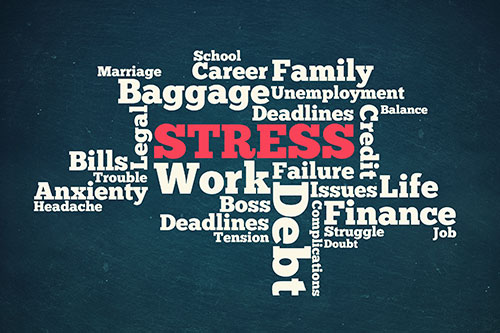Stress-related muscle tension, pain and stiffness
Being stressed and/or anxious causes the body to produce the stress response, which secretes stress hormones into the bloodstream where they travel to targeted spots in the body to bring about specific physiological, psychological, and emotional changes that enhance the body’s ability to deal with a threat—to either fight with or flee from it—which is the reason this response is often referred to as the fight or flight response.
One of the physiological changes the stress response brings about is that it causes the muscles to contract (tighten). Tight muscles make the body more resilient to attack when in dangerous situations. When stress responses occur infrequently, the body can recover relatively quickly from the physiological, psychological, and emotional changes the stress response brings about. This can make muscle tension temporary and not seem problematic.
When stress responses occur too dramatically and/or frequently, however, the body can remain in a state of emergency readiness and/or become stress-response hyper-stimulated, since stress hormones are stimulants. Hyper-stimulation can cause muscles to remain tense and tight that lead to headaches, muscle pain/ tension/stiffness etc.


